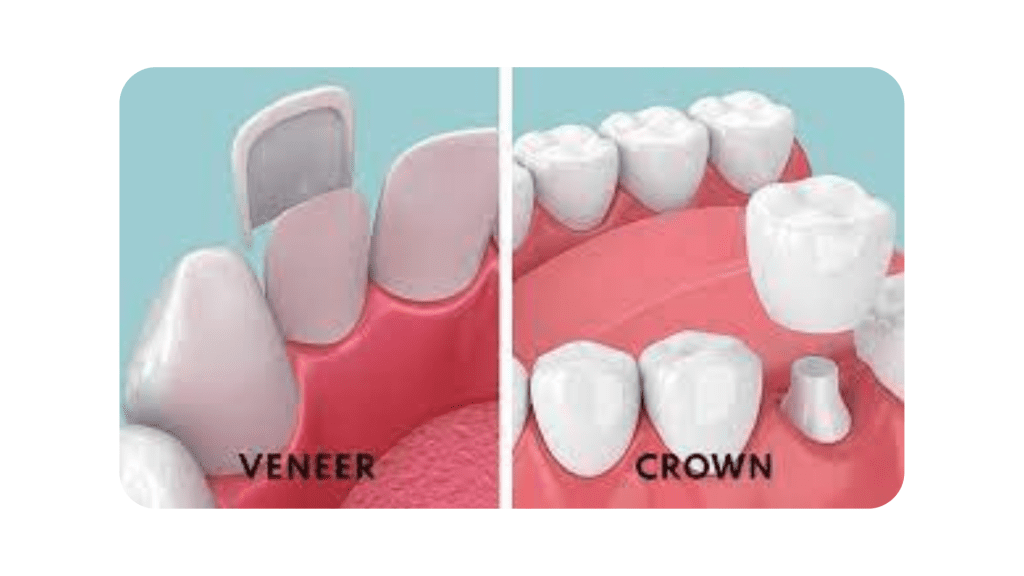
Dental veneers and dental crowns are different. Dental veneers are thin, tooth-colored shells that are created to order and are designed to cover the front of teeth to improve their appearance. Individual teeth can have these shells affixed to the front that change the color, shape, or size of the tooth. Dental crowns completely encase the front and back of the tooth. You can fix short, crooked, or stained teeth with crowns. There are numerous other ways for your dentist at Summerlin Dental Solutions to give you the celebrity smile you desire!
Types of dental veneers:
Dental veneers are often constructed of composite resin or porcelain. Veneers made of porcelain are more stain-resistant than veneers made of resin. They also more closely replicate the characteristics of genuine teeth that reflect light.
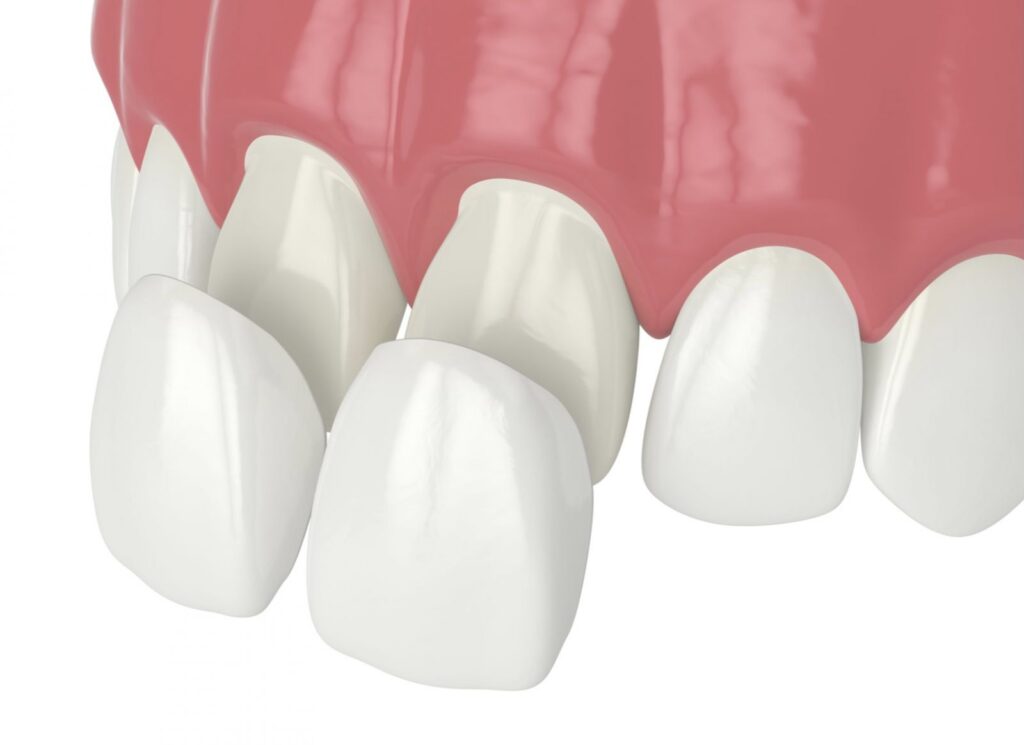
What kinds of problems do dental veneers treat?
These conditions are frequently treated with veneers:
Teeth that are stained by tetracycline or fluorosis; large resin fillings; teeth that are worn down; teeth that are chipped or missing; teeth that are misaligned or crooked; teeth that are discolored as a result of food, drink, or smoke staining.
Dental Veneers' Price
Due to the fact that veneers are regarded as a cosmetic operation, insurers typically do not cover them. Conventional veneers can cost between $925 to $2,500 per tooth on average, and they can last between 10 and 15 years, citing the Consumer Dentistry Guide. No-prep veneers range in price from $800 to $2000 per tooth and last for five to seven years. Traditional veneers are frequently the long-term most economical choice. However, the price of your veneers will vary depending on your preferences for the type of veneers, the brand that your dentist carries, the cost of living in your city, and the dentist's level of experience.
Depending on your insurance policy and the situation, crowns might be covered.
Blended veneers: These coatings, which are frequently referred to as direct veneers, are put to the teeth at a single dental visit and cost about $250 per tooth. Normally, they need to be replaced after 5 to 7 years.
Ceramic veneers These coatings, often referred to as indirect veneers, are produced specifically to match your teeth, necessitating two dental visits: one to match your teeth to the veneers and the other to place them. Porcelain veneers are more expensive than composite veneers, typically costing at least $1,000 per tooth, but they frequently last even longer.
Compared to composite veneers, these veneers are more resilient and natural-looking. However, because composite veneers are thinner, less dental enamel must be removed in order to apply them.
Book a Dental Consultation!
Dental Veneers' Benefits
Veneers provide the following benefits:
The benefits of porcelain veneers include: a natural-looking tooth appearance; good gum health; resistance to coffee, tea, and red wine stains; and the option to choose a tint that will make dark teeth as white as you choose.
How are dental veneers placed on teeth?
After we take an impression, it typically takes one to two weeks for the lab to return your veneers. You should schedule an appointment to have your veneers bonded as soon as they are placed. At this appointment, your dentist will make sure the veneers are the proper size, shape, and color for you. We can return them in as little as two days if your case has to be expedited.
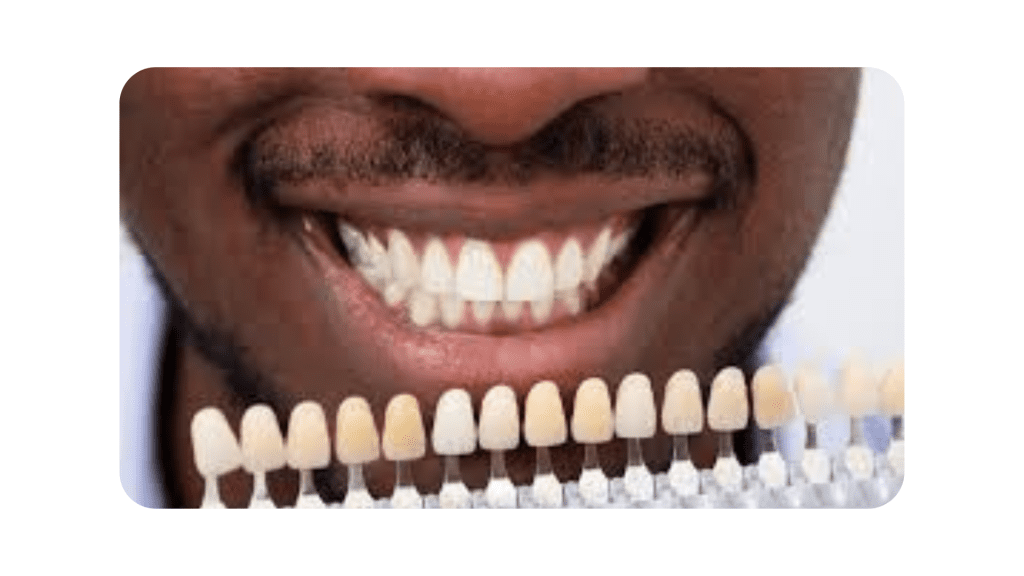
We thoroughly clean the teeth first. We then clean the interior of the new veneer. The veneer will attach to the tooth more readily as a result. The veneer is subsequently attached to the tooth using dental cement. Finally, the cement is swiftly hardened using UV light.
Veneer Process: Expectations
Two appointments spread over one to two weeks can complete the dental veneer procedure. The reviews and dental planning sessions can last for several hours. The dentists at Summerlin Dental Solutions will take care to make sure you're comfortable the entire time.
To identify any oral health issues that must be resolved prior to the insertion of veneers, the examination and assessment phase of care is essential. Additionally, we will assist you in selecting the ideal colour for your teeth from a special hue shade guide. Imaging technology will give you a glimpse of your desired result and enable you to see examples of successful before-and-after photos from other cases. Once the assessment is complete and a specialized plan has been created, treatment can begin.
A Step-by-Step Process
The veneering procedure is divided into several steps. To make sure you're comfortable while your veneers are being placed, we'll give you a local anesthetic. Some people like getting an oral sedative in addition to their session. The next step in preparing your natural tooth involves lightly reshaping it with a bur, a tiny, portable rotary cutting tool. Your dentist can apply a properly shaded composite to your teeth, shape the material, and harden it with a high-intensity light if your treatment calls for direct composite veneers.
If necessary, more composite layers can be used to shape and lengthen the veneer to match your smile. Following the installation of all the composites, the veneers will be polished and completed using burs and polishers to create a vibrant, natural smile.
If porcelain veneers are part of your treatment, the dentist will take an impression of your teeth to use in creating your new smile. The dental facility where the veneers are expertly made will receive this imprint.
Your replacement veneers could be ready in a few days if necessary.
Timelines, CAD/CAM, and Dental Laboratories
Temporary veneers give a preview of the desired outcome, although it should be emphasized that they are not always necessary. Your dentist can forego a temporary procedure if your treatment only necessitates one or a few teeth and enough enamel is still present on the surface.
Additionally, temporary veneers or crowns may increase sensitivity, as can a brief period of time following the placement of final veneers. Your dentist will take out the temporary veneers and place the permanent ones at the placement session. Then, they will review and make any necessary adjustments to guarantee the best possible fit, color, and appearance.
Restoration and Post-Process Care
The durability of veneers has been demonstrated to allow them to last for many years before needing to be changed. It's essential to visit your dentist and hygienist for regular checkups and cleanings if you want to maintain your oral health and the longevity of your recovery. Following-up is also crucial.
Your dentist can explain the cost and time involved in replacing damaged porcelain veneers as they cannot be repaired once they are chipped or fractured.
To reduce the chance of injury, avoid biting or chewing on hard things like nuts, ice, shells, or bones. You should also avoid opening or tearing packs with your teeth. Additionally, your dentist might advise you to stay away from certain foods that could hurt both your new veneers and you. As usual, brush and floss your teeth, but be sure to use a non-abrasive toothpaste.
Veneers often don't require any particular care. Maintain your regular oral hygiene practices, such as brushing, flossing, and using an antimicrobial mouthwash. Although porcelain veneers are stain-resistant, your dentist may advise you to stay away from staining foods and beverages (e.g., coffee, tea, or red wine).
Book a Dental Consultation!
Dental Veneers' Risks
Substitutes for Dental Veneers
Veneers can be replaced with crowning and bonding. If you wish to change the shape of your teeth more significantly than with bonding but not enough to need a crown, veneers might be your best option.
Dental veneers are a treatment option for:
Veneers' main benefit is that they improve the quality of your teeth, giving you a whiter, more even smile. There are several cosmetic issues that can be treated with dental veneers:
Realign your crooked teeth if you have the following:
• Chipped teeth
• Extreme discolouration or irregular coloring that cannot be improved by whitening
• A gap in the teeth
• Smaller than average teeth
Considerations for selecting dental crowns
Dental crowns can be divided into groups based on their construction, longevity, and use. A range of materials are offered at various prices. Of course, you should ultimately collaborate with your dentist to identify your unique requirements and standards.
Book a Dental Consultation!
Considerable factors include:
Dental Crown Types
Regardless matter the style of crown you and your dentist decide is best for you, it will be crafted to perfectly fit over the remaining portion of your natural tooth. The following list of several material choices is provided:
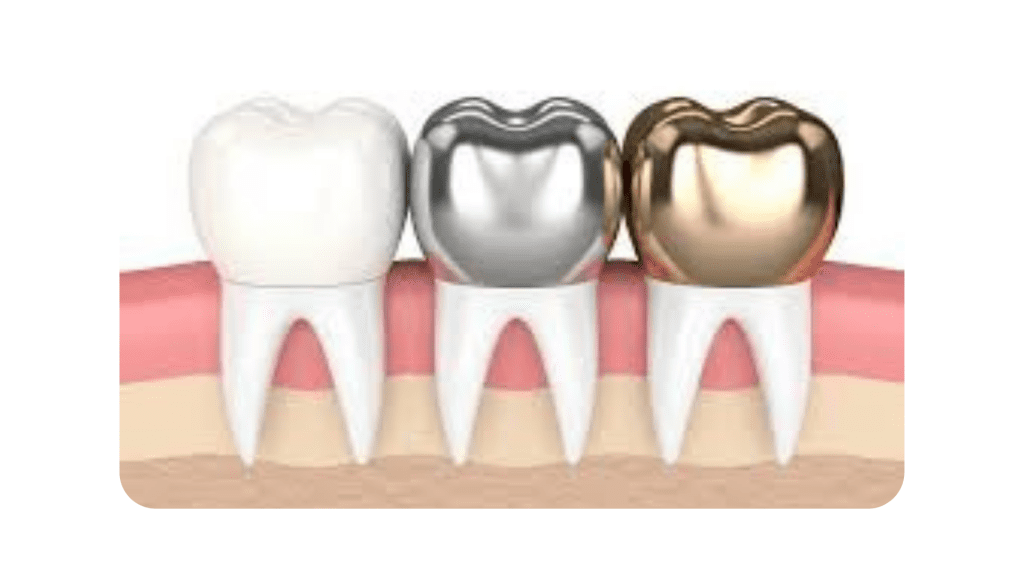
Porcelain Crowns
These are currently in demand and are made of materials including zirconia, porcelain, and others. Ceramic crowns are excellent at resembling a natural tooth. They are beautiful and inviting. They are not as strong as metal crowns, though, and they can shatter.
Crowns with porcelain attached to metal (PFM)
Like its name suggests, this choice has a porcelain top that is affixed to a metal base. The best of both worlds (aesthetics and durability) are attempted to be combined with this option, though not always effectively. Over time, the metallic element might become visible as a striking line above the gum. A metal allergy is also a possibility in this situation.
Metal Crowns
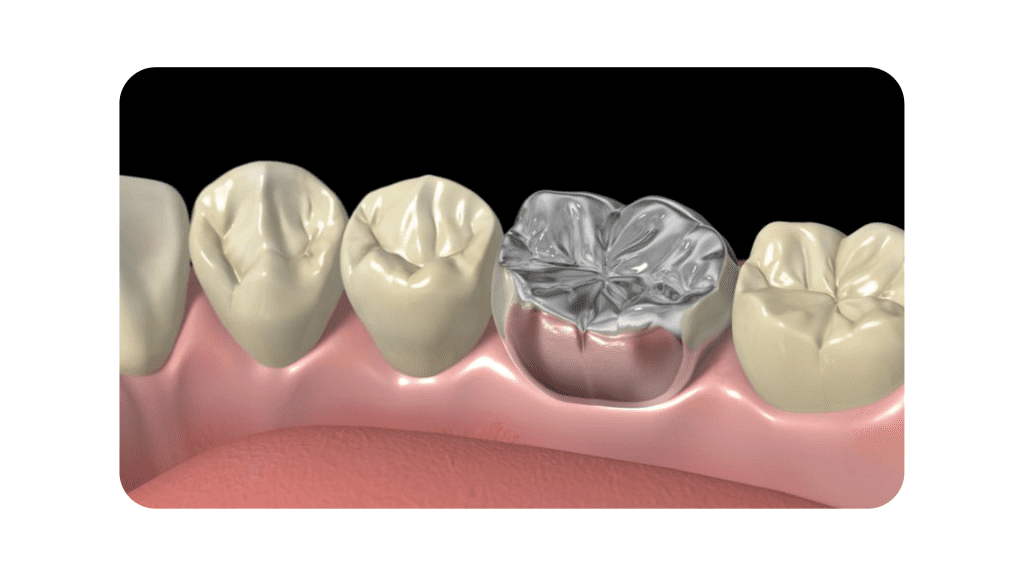
This choice has exceptional toughness and durability. However, compared to the appearance of natural teeth, metal crowns do clearly stand out. They are frequently used to restore back teeth just for this reason. Their use may also be complicated by metal allergies.
Crowns in Stainless Steel
If a crown is necessary, this option—while not the most cosmetically pleasing—can work for a child's baby teeth.
Resin Composite
These lack the robustness and visual appeal of their porcelain counterparts. They are, however, far friendlier to your wallet.
• Provisories or transient crowns. While you wait for a final or permanent crown to be manufactured, these temporary restorations—which can be composed of various materials—are often placed in place. Your dentist may occasionally purposefully keep a temporary crown in place for a long period of time. To lessen discomfort, this is a popular practice.
What are dental crowns' prices?
The typical cost of a crown is between $800 and $1,700. The degree to which your natural tooth has been harmed, the kind of material you choose, and the installation's skill level will all be determining factors. (All-ceramic crowns demand more expertise and effort.) Given that there are geographical variations, the location of your dental office may also be important.
The following are the crown prices, broken down by kind or material:
How much will it cost to obtain a dental crown?
It takes more than just practicing smiling to improve your smile. Your dental treatment may often entail a variety of procedures, some of which may include:
These operations could cost more than the crown alone, depending on the severity of the damage. Your crown could also need to be checked again in the future. Include this as well.
Are dental crowns covered by insurance?
Since many dental operations are regarded as aesthetic, insurance companies frequently do not cover their costs. Crowns, however, are primarily corrective and restorative even though they may be regarded as aesthetic. They can limit additional harm to the tooth or teeth nearby while also relieving significant agony. They can also be fitted in an effort to stop some types of tooth damage. These factors may cause your insurance provider to pay up to half of the cost of a dental crown.
Consider additional methods of payment if you require assistance paying for your crown. A dental plan or working with a financial organization to assist you progressively pay off the fees are a couple of examples.
Why are crowns for teeth so expensive?
Dental crowns are expensive mostly because of the materials used, some of which can be challenging to find. Of course, a dentist's expertise and time are required in order to obtain a crown. One visit also might not be enough.
Are dental crowns worth it?
Remember the initial reason you required a crown to provide the appropriate response. Problems with self-esteem may result from dental disorders. If serious damage is not treated, you might lose production and end up spending considerably more. Cure is more expensive than prevention.
Therefore, despite their high cost, dental crowns provide both comfort and protection from further harm in addition to their cosmetic value.
The most crucial thing to keep in mind is that crowns are durable medical procedures. You might use them for a decade or even two. You might keep your crown for the remainder of your years depending on your age at the time of treatment.
So, certainly, in the long run, we think crowns are priceless!
A crown can last for how long?
Crowns normally last between five and fifteen years, depending on the material used, your oral hygiene regimen, and your eating and chewing habits. Some could last for 20 years.
Of course, metallic crowns endure longer. They are more resistant to chewing force and have a higher tensile strength. Some patients adore chewing on hard things like ice, but it's vital to keep in mind that crowns are susceptible to fractures and even cavities.
Summary
Dental crowns and veneers are aesthetic tools that improve a person's smile by slightly or significantly changing the way their teeth look. In addition to improving color and giving teeth a more natural shape, dental veneers also lessen cracks, fix chips, and conceal other minor tooth problems. Veneers come in a range of prices and sturdiness.
Although porcelain veneers cost much more, they are typically healthier and last longer. Crowns might be the answer if you're looking for a long-term fix for significant cosmetic problems.
Your ticket to a gorgeous smile and a stunning new you may be dental veneers or crowns!
As always, schedule a dental appointment and discuss your options with our dentist.
Your dental health and wellbeing are important to us. Although their level of expertise can vary substantially, the majority of dental practices provide veneers and crowns.
Your dentist at Summerlin Dental Solutions has the knowledge you need to once again have a star-studded smile.
It's simpler than you would imagine!
Book a Dental Consultation!